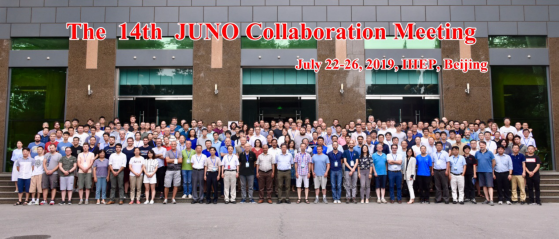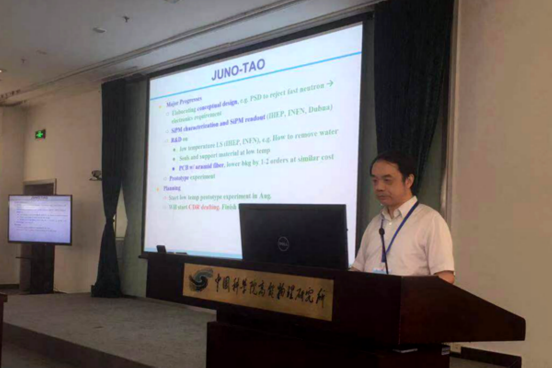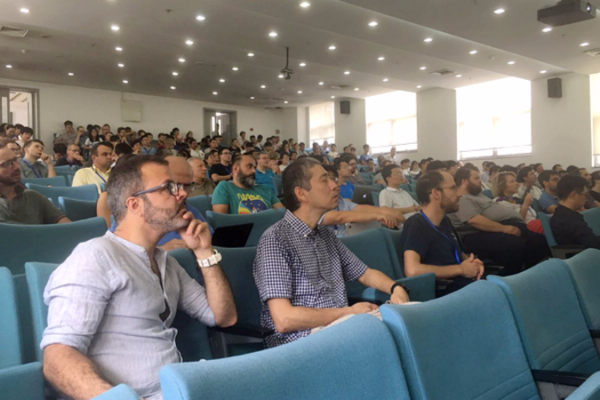From July 22th to 26th, the 14th international collaboration meeting of JUNO experiment was held by Institution of High Energy Physics. Approximately 200 scientists from more than 47 universities and institutes, belonging to 14 countries and regions including China ,Taiwan China, Italy, France, Germany, Russia, the Czech Republic, Belgium, the United States, Brazil, Chile, Armenia, Thailand and Pakistan attended the meeting. Italy Embassy Science Counsellor Mario Giordan was invited to this meeting.
The spokesperson of JUNO, the director of IHEP, Yifang Wang introduced overall status of the experiment at the beginning of the meeting and gave a summary about the focus and the schedule of the next phase. 12 subsystems and 5 special working groups reported their progress and organized discussions in parallel sessions. At the same time, 8 technical reviews were conducted. The risk of underground civil construction is decreasing and detector manufacture have been started. Since the date of detector installation is closing, the onsite management and installation organization was discussed during the meeting.
The JUNO experiment is expected to fully complete its construction in 2021 and then can be operated for more than 20 years. After data taking, JUNO is promising to solve multiple scientific issues, such as neutrino mass hierarchy, themechanism of Supernovae explosion and so on, that will help us to have a better understanding of particle physics and make significant contributions to cosmology, astrophysics and even geophysics.
The meeting announced that the 15th collaboration meeting would be held from January 13th to 17th, 2020 at Guangxi University, Guangxi.

Group photo

Wang Yifang’s report

Meeting

